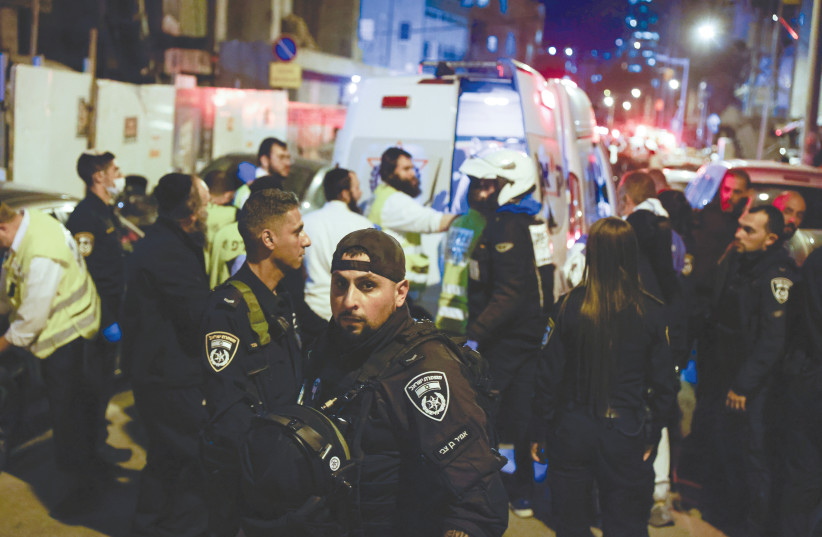Knesset Foreign Affairs and Defense Chairman (FADC) Ram Ben Barak said Monday that the government may need to declare a state of emergency to cope with the ongoing terror wave.
In the last few weeks, there have been several terror attacks, in some instances multiple unrelated attacks in different cities within the Israeli Green Line in less than 24 hours.
Speaking at a joint session of the FADC and the Knesset Interior Committee, led by Chairwoman Meirav Ben Ari, Ben Barak said, “I appreciate that the Police has known how to act with restraint and prevent deterioration. There are two categories of terror: internal and Palestinian. Regarding Palestinian terror, we will not hold back any efforts and the security forces are doing all that is required, including arrests under fire.”
“In addition, we should build up the forces along the border fence until it is completed. Regarding terror originating from within the country, we have gotten to the point where we should weigh declaring a state of emergency for a period of time, to use emergency laws in order to eliminate the phenomenon,” he said.
The FADC Chairman said, “We should use administrative detention and stiffen sentences regarding incitement. The criminal, the nationalistic and terror are mixing together. We must restore public order and sovereignty.”

Ben Ari said that the border fence must be completed, but that given that this would take time, there needed to be more immediate security solutions, such as increasing the volume of police and especially border police forces.
She said that she and others were leading the push for allocating an additional NIS 70 million to the Police to handle the issue as the first of three periodic payments toward increasing law enforcement’s resources for combating the terror wave.
Both indirectly pointed the finger at prior governments for neglecting finishing the border fence over many years dating back to its establishment around 2004.
Former Shin Bet director and Likud MK Avi Dichter said, “the IDF has tried to escape responsibility for the border fence for years, but that the IDF should be held responsible and that it cannot be that it can be penetrated in a wide number of areas.”
Dichter said that the Police cannot function effectively in fighting the terror wave when their budget is a mere NIS 3 billion and 80% of that budget goes to paying salaries.
The former Shin bet director also threatened the judiciary branch that if courts did not start giving harsher sentences for incitement, the Knesset would need to set minimum sentences.
Likud MK Ofir Akunis said that the opposition would not oppose increasing the Police budgets, but would demand a new law revoking citizenship for terrorists.
The coalition has not taken up the negating citizenship issue in general due to legal concerns, though some members have called for a mild form of penalizing citizenship rights or statuses.
Partially responding to Dichter, Justice Ministry representative Gavriela Fisman reminded those present that the Knesset passed a new temporary emergency law a couple of months ago which already set minimum sentencing standards for weapons-related crimes.
Next, Fisman said the ministry was trying to move forward with legislation for searches and seizures without a warrant in the event of a suspected serious felony involving weaponry.
She also recalled to the committee that IDF soldiers cannot perform policing functions and can, at most, accompany police officers to provide back-up in the case of an altercation.
IDF Operations Commander Col. Yisrael Shomer said that the IDF has contributed 1,300 additional soldiers to assist the Police and the border police during the current terror wave.
He also said that the IDF was working hard at a strategic level to cut-off any connection or momentum between terror developments in the West Bank, in Gaza or within Israel, especially regarding Jerusalem.
Police operations official Ofir Binder discussed the importance of the Police working in conjunction with the IDF, the Shin Bet and other security forces as well as increased training, providing better equipment and arms, urgency and alertness for the Police.
